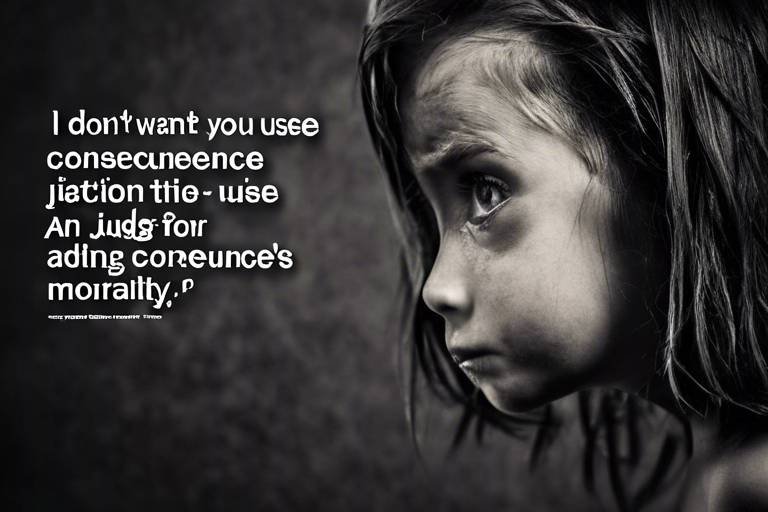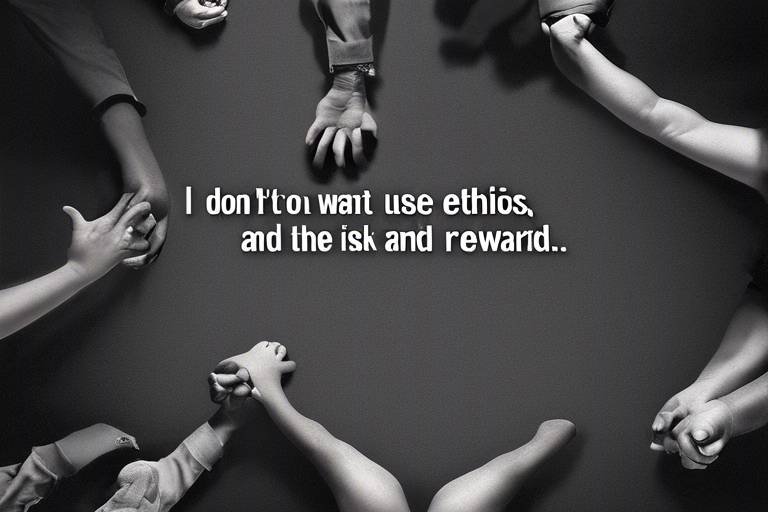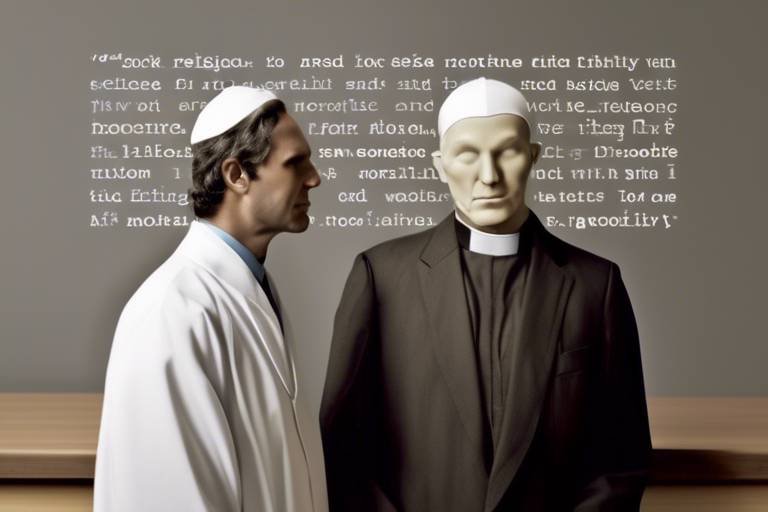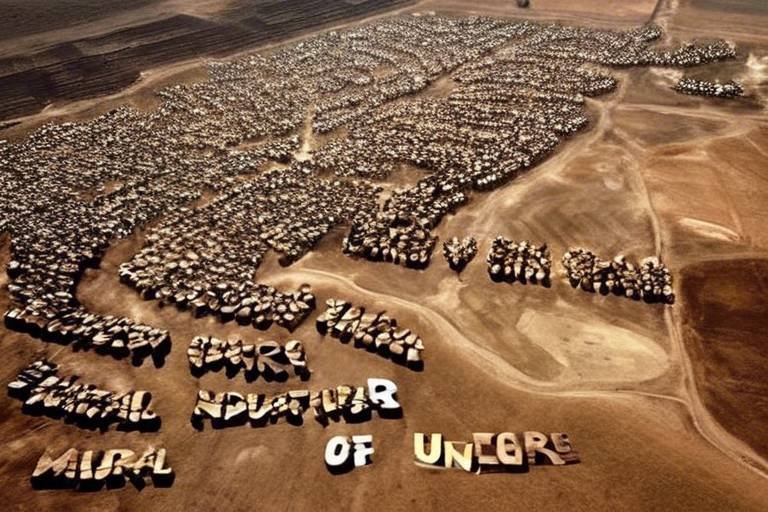The Ethics of Legislating Morality
In a world where laws govern our actions, the question of morality often looms large: should we legislate morality? This intricate dance between ethics and law has fascinated philosophers, lawmakers, and everyday citizens alike. It’s not just about right or wrong; it’s about the very fabric of society and how we choose to weave it. As we navigate through the complexities of moral legislation, we uncover layers of meaning, intention, and consequence that shape our lives in profound ways.
At its core, the ethics of legislating morality delves into the essence of what we believe is right and wrong. Imagine a society without any moral compass; it would be akin to a ship lost at sea, without a rudder to guide its course. Laws are often seen as the reflection of a society's moral values, yet they can also become tools of oppression when misused. This paradox raises critical questions: Who decides what is moral? And, can laws truly encapsulate the vast spectrum of human ethics?
One of the most compelling aspects of this discussion is the notion that morality is not static; it evolves. Just as languages change over time, so do our moral beliefs. What was once considered acceptable may now be viewed as abhorrent, and vice versa. This fluidity makes the task of legislating morality incredibly challenging. It requires a delicate balance between enforcing societal norms and allowing for personal freedoms. How do we ensure that laws reflect the collective conscience without stifling individual rights?
As we explore the implications of legislating morality, we must consider the diverse influences that shape our ethical frameworks. Cultural backgrounds, religious beliefs, and personal experiences all play significant roles in defining what is deemed moral in any given society. For instance, in some cultures, communal values may take precedence over individual rights, while in others, personal freedom is paramount. This cultural relativism complicates the process of creating laws that are fair and just for everyone.
Moreover, the intersection of religion and morality cannot be overlooked. In many societies, religious teachings serve as a cornerstone for moral values. However, in secular environments, this can lead to tension and conflict. How do we navigate these waters? The challenge lies in crafting legislation that respects religious beliefs while upholding the principles of a pluralistic society. This balancing act is fraught with potential pitfalls, as seen in numerous legal battles over issues such as marriage equality and reproductive rights.
Legislating morality can also lead to unintended consequences. History is replete with examples where laws intended to uphold moral standards resulted in social backlash or legal chaos. For instance, Prohibition in the United States aimed to eliminate alcohol consumption, yet it fostered a culture of crime and corruption instead. Such cases serve as cautionary tales, reminding us that the path to moral legislation is often riddled with unforeseen challenges.
As we ponder the future of moral legislation, it’s essential to recognize that societal values are in constant flux. With advancements in technology and shifts in public opinion, we may witness significant changes in how morality is legislated. The rise of digital platforms, for instance, has sparked conversations around privacy, freedom of expression, and the ethical implications of artificial intelligence. How will these developments shape our legal landscape?
In conclusion, the ethics of legislating morality is a complex and dynamic issue that requires careful consideration of various factors. It invites us to reflect on our values, question our beliefs, and engage in meaningful dialogue about the kind of society we wish to create. As we move forward, it’s crucial to foster an environment where diverse perspectives are heard, and where laws can adapt to the ever-changing moral landscape.
- What is the primary challenge in legislating morality? The main challenge is balancing societal norms with individual freedoms, ensuring that laws reflect collective values without imposing undue restrictions.
- How do cultural differences impact moral legislation? Cultural contexts shape moral beliefs, leading to diverse perspectives on what should be legislated and how, which can complicate the creation of universally accepted laws.
- Can morality be legislated effectively? While laws can enforce certain moral standards, they may not change individual beliefs or behaviors, highlighting the limitations of legal measures in shaping morality.
- What role does religion play in moral legislation? Religion often influences moral values and can inform legislation, but this can lead to conflicts in secular societies that prioritize separation of church and state.

The Concept of Morality
Understanding morality is crucial in discussing its legislative implications. But what exactly is morality? At its core, morality refers to the principles concerning the distinction between right and wrong or good and bad behavior. It’s an intricate tapestry woven from the threads of culture, religion, personal beliefs, and societal norms. Think of it as a compass guiding individuals and societies in making decisions that align with their values.
Morality can be perceived in various ways, and it often varies significantly across different cultures and societies. For example, in some cultures, collectivism is emphasized, where the needs of the community outweigh individual desires. In contrast, other cultures prioritize individualism, celebrating personal freedom and self-expression. This divergence creates a fascinating yet complex landscape where moral values can clash, leading to debates on what should be legislated.
To further illustrate this complexity, consider the following definitions of morality:
- Descriptive Morality: This refers to the actual beliefs, behaviors, and practices that people hold regarding right and wrong.
- Normative Morality: This aspect deals with the theoretical frameworks and principles that dictate what individuals ought to do.
- Meta-Ethics: This branch examines the nature of morality itself, questioning whether moral truths exist independently of human beliefs.
The significance of morality in shaping societal norms cannot be overstated. It serves not only as a guideline for personal behavior but also as a foundation for laws and regulations. For instance, laws against theft and murder are rooted in a collective moral understanding that these actions are inherently wrong. However, the challenge arises when we consider those moral beliefs that are contentious or not universally accepted. How do we legislate morality without infringing on individual freedoms?
Moreover, morality is not static; it evolves over time. What was considered morally acceptable a century ago may be viewed as abhorrent today. This evolution is often influenced by various factors, including social movements, technological advancements, and changing cultural dynamics. Therefore, the relationship between morality and legislation is both dynamic and complex, requiring constant reflection and adaptation.
In summary, the concept of morality is multifaceted and deeply intertwined with the fabric of society. It influences laws, shapes cultural norms, and guides individual behavior. As we delve deeper into the ethics of legislating morality, it becomes essential to recognize these complexities and the implications they hold for governance and personal freedom.
- What is the difference between morality and ethics? Morality typically refers to the principles of right and wrong behavior, while ethics pertains to the systematic study and application of those moral principles.
- Can laws reflect personal moral beliefs? Yes, laws often reflect the collective moral beliefs of a society, but they can also conflict with individual moral convictions.
- Is morality universal? No, morality is not universal. It varies significantly across different cultures and societies, leading to diverse interpretations of right and wrong.

The Role of Law in Society
Law is often viewed as the backbone of societal structure, providing a framework within which individuals coexist. It is an intricate web that intertwines with our daily lives, influencing everything from our personal choices to our interactions with others. At its core, law serves to establish order and promote justice, acting as a guideline for acceptable behavior. But how does law achieve this? What is the relationship between law and the moral compass of society?
One of the primary roles of law is to reflect societal morals. Laws are not created in a vacuum; they are shaped by the prevailing values and beliefs of the community. For instance, laws prohibiting theft or violence are rooted in the moral understanding that these actions are wrong. This alignment between law and morality is crucial because it fosters a sense of legitimacy and acceptance among the populace. When people perceive laws as just and morally sound, they are more likely to adhere to them voluntarily, reducing the need for coercive enforcement.
However, the relationship between law and morality is not always straightforward. There are instances where laws may enforce a moral perspective that does not resonate with everyone. Consider laws related to drug use or same-sex marriage; these laws can reflect the moral beliefs of a particular group while simultaneously marginalizing others. This brings us to a critical balance that must be maintained: the need to enforce moral standards while also protecting individual freedoms. It raises the question: how do we decide which morals should be legislated, and who gets to make that call?
In navigating this balance, the law must consider the diverse values present in a pluralistic society. For example, in a community where various cultures coexist, the legal system must strive to respect different moral beliefs while upholding a cohesive social order. This can be a daunting task, as what is deemed acceptable in one culture may be viewed as immoral in another. The law, therefore, becomes a reflection of the dominant culture's morals, which can lead to tensions and conflicts among minority groups.
Moreover, the law serves as a mechanism for social change. Throughout history, we have seen how laws can be leveraged to challenge and transform societal norms. The abolition of slavery and the civil rights movement are prime examples where legal changes were instrumental in reshaping public morals. Yet, this process is often met with resistance, as entrenched beliefs can be difficult to change. Here, the law acts not only as a mirror of society but also as a catalyst for progress, pushing the boundaries of what is considered morally acceptable.
In conclusion, the role of law in society is multifaceted and complex. It serves to establish order, reflect societal morals, protect individual freedoms, and promote social change. As we continue to navigate the delicate balance between legislating morality and respecting personal autonomy, it is essential to engage in ongoing dialogue about the values that underpin our legal system. After all, the laws we create today will shape the moral landscape of tomorrow.
- What is the primary purpose of law in society?
The primary purpose of law is to maintain order, protect individual rights, and promote justice within a community.
- How do laws reflect societal morals?
Laws are influenced by the prevailing values and beliefs of a society, reflecting what is deemed acceptable or unacceptable behavior.
- Can laws change societal morals?
Yes, laws can act as catalysts for social change, helping to reshape public perceptions of morality over time.

Moral Absolutism vs. Relativism
When diving into the murky waters of morality, one can’t help but stumble upon two heavyweights: Moral Absolutism and Moral Relativism. These two philosophical perspectives offer contrasting views on the nature of morality and its application within society. Imagine morality as a vast ocean, where absolutism represents a fixed shoreline, and relativism embodies the ever-changing tides. But what do these terms really mean, and why do they matter in the context of legislating morality?
Moral Absolutism posits that there are universal moral principles that apply to all individuals, regardless of context or culture. Think of it as the idea that some actions are inherently right or wrong, like the belief that murder is always wrong, no matter the circumstances. This perspective often draws on religious or philosophical doctrines that assert certain values as absolute truths. Advocates argue that this consistency provides a clear moral compass for societies, ensuring that laws reflect these unchanging principles.
On the other hand, we have Moral Relativism, which suggests that morality is not a one-size-fits-all concept. Instead, it varies based on cultural, social, or personal circumstances. Imagine attending a potluck dinner where everyone brings a different dish; what’s delicious to one person might be unappetizing to another. This perspective implies that what is considered "right" or "wrong" can differ dramatically across societies. For instance, practices that are deemed acceptable in one culture may be viewed as taboo in another, leading to a rich tapestry of moral beliefs that can sometimes clash.
The debate between these two schools of thought raises significant questions: Should laws be based on absolute moral truths, or should they reflect the diverse beliefs of a pluralistic society? Advocates for moral absolutism might argue that without a clear moral standard, society risks descending into chaos, where anything goes. Conversely, proponents of moral relativism would caution against imposing a singular moral framework on a diverse population, advocating for a more inclusive approach that respects varying beliefs.
To further illustrate this divide, consider the following table that outlines key differences between moral absolutism and relativism:
| Aspect | Moral Absolutism | Moral Relativism |
|---|---|---|
| Definition | Universal moral principles apply to everyone. | Morality is context-dependent and varies by culture. |
| Examples of Beliefs | Actions like murder and theft are always wrong. | Practices like polygamy may be acceptable in some cultures. |
| Implications for Law | Legal systems should enforce universal moral standards. | Legal systems should accommodate cultural differences. |
Ultimately, the tension between moral absolutism and relativism presents a complex landscape for lawmakers. As society grapples with issues like human rights, environmental ethics, and social justice, understanding these two perspectives becomes crucial. Are we to uphold a set of universal truths, or do we embrace the rich diversity of human experience? The answer may not be clear-cut, but it is a discussion worth having, as it shapes the very foundation of our laws and the moral fabric of our society.
In the end, navigating the waters of morality requires both courage and humility. It’s a reminder that while we may strive for clarity in our moral beliefs, the reality is often more nuanced and layered than we might like to admit. The ongoing dialogue between moral absolutism and relativism will undoubtedly continue to shape our legal systems, influence societal norms, and challenge our understanding of what it means to live ethically in a diverse world.

The Impact of Cultural Differences
The tapestry of human culture is rich and varied, woven from countless threads of history, tradition, and belief. When we talk about the impact of cultural differences on morality, we're diving into an ocean of perspectives that can sometimes clash like waves against a rocky shore. Different cultures often have unique moral frameworks, which can lead to a myriad of interpretations regarding what is considered right or wrong. Take, for instance, the concept of individualism versus collectivism. In many Western cultures, individual rights and personal freedoms are paramount, while in numerous Eastern cultures, the emphasis may be on community and familial obligations. This divergence can lead to significant differences in legislative approaches.
Legislation is not created in a vacuum; it is a reflection of the prevailing moral values of a society. In a pluralistic society, where multiple cultures coexist, the challenge becomes finding common ground. For example, issues like marriage equality, reproductive rights, and freedom of expression can be viewed through vastly different lenses depending on cultural backgrounds. In some cultures, these issues might be approached with a strict moral code, while in others, a more liberal perspective might prevail. This can create tension and conflict when laws are enacted that seem to favor one cultural viewpoint over another.
Moreover, the legal system often struggles to keep pace with the rapid changes in cultural attitudes. As globalization continues to shrink our world, cultural exchanges become more frequent, leading to evolving moral standards. Laws that once seemed appropriate may become outdated as new ideas and values emerge. For instance, the growing acceptance of LGBTQ+ rights in many parts of the world contrasts sharply with societies where such identities are still stigmatized. This disparity highlights the need for lawmakers to be sensitive to cultural differences while crafting legislation that respects human rights.
To illustrate the complexities involved, consider the following table that outlines how different cultures perceive key moral issues:
| Cultural Context | Individual Rights | Community Values | Legislative Approach |
|---|---|---|---|
| Western Cultures | High emphasis on personal freedom and autonomy | Less focus on community obligations | Progressive legislation that supports individual rights |
| Eastern Cultures | Community and family take precedence over individual desires | Strong emphasis on social harmony | Legislation often reflects collective values |
| Indigenous Cultures | Rights often tied to land and tradition | Deep respect for nature and community | Legislation may prioritize environmental and cultural preservation |
As we navigate these cultural waters, it’s essential to recognize that no single moral framework can claim absolute truth. The interplay between cultural differences and morality is a dynamic and ongoing dialogue. This dialogue can lead to greater understanding and cooperation, but it can also result in conflict and division. Thus, lawmakers must be equipped with cultural sensitivity and awareness to create laws that are just, equitable, and reflective of the diverse society they serve.
Q: Why is it important to consider cultural differences in legislation?
A: Considering cultural differences helps ensure that laws are fair and representative of the diverse values within society, promoting social harmony and reducing conflict.
Q: How do cultural differences affect moral beliefs?
A: Cultural differences shape our understanding of morality through traditions, religious beliefs, and societal norms, leading to varying interpretations of right and wrong.
Q: Can laws be effective if they don't align with cultural values?
A: Laws that do not align with cultural values may face resistance and lack compliance, making them less effective in promoting social order and justice.

The Influence of Religion on Morality
Religion has long been a cornerstone in the foundation of moral values, acting as a guiding force for countless individuals and communities throughout history. At its core, religion often provides a framework that defines what is considered right and wrong, influencing not only personal behavior but also societal norms. For many, religious teachings serve as a moral compass, helping to navigate the complexities of ethical dilemmas. But how does this interplay between religion and morality manifest in legislation?
One of the most significant ways religion influences morality is through the establishment of ethical guidelines that are often codified into law. For instance, many legal systems around the world have roots in religious texts, such as the Ten Commandments in Judeo-Christian traditions. These commandments serve as a moral baseline that shapes laws concerning theft, murder, and perjury. However, the challenge arises when these religiously-based laws intersect with the principles of a secular society, where diverse beliefs coexist.
Different religions offer varied interpretations of morality, leading to a tapestry of ethical perspectives. For example, while one religious group may advocate for strict adherence to certain moral codes, another might emphasize compassion and forgiveness. This divergence can create friction when it comes to legislation. Consider the debates surrounding issues such as abortion and same-sex marriage, which are often heavily influenced by religious beliefs. The clash between religious morality and individual rights raises critical questions: Should laws reflect religious values, or should they prioritize personal freedom?
The impact of religion on morality is not limited to laws; it also shapes the public discourse surrounding moral issues. Religious leaders often play a pivotal role in advocating for specific legislative agendas, mobilizing communities to support or oppose certain laws. This can lead to a powerful coalition of like-minded individuals who seek to influence lawmakers. However, this influence can also result in polarization, as differing religious views clash in the public arena.
In a pluralistic society, where multiple religions and belief systems coexist, the challenge becomes finding common ground. It is essential to recognize that while religion can provide a strong moral foundation, it is not the only source of ethical guidance. Secular philosophies, human rights frameworks, and cultural traditions also contribute to our understanding of morality. Thus, the question remains: how can we legislate morality in a way that respects diverse beliefs while promoting the common good?
Ultimately, the influence of religion on morality is a double-edged sword. On one hand, it can provide a sense of community and shared values; on the other, it can lead to exclusion and conflict. As societies continue to evolve, the challenge will be to balance these influences in a manner that upholds both moral integrity and individual freedoms.
- How does religion shape moral values? Religion often provides a framework for defining right and wrong, influencing both personal behavior and societal norms.
- Can laws be based solely on religious beliefs? While many laws have religious roots, in a secular society, it is crucial to consider diverse beliefs when creating legislation.
- What are the implications of legislating morality? Legislating morality can lead to conflicts between religious values and individual rights, creating a complex landscape of ethical considerations.
- How can societies balance religious influence with personal freedom? By fostering dialogue and understanding among different belief systems, societies can find common ground while respecting individual rights.

The Consequences of Legislating Morality
Legislating morality is a double-edged sword that can slice through the fabric of society, often with unexpected results. When laws are enacted to uphold certain moral standards, they can create a ripple effect that touches every aspect of life. But what happens when those morals clash with personal beliefs? The consequences can be profound, leading to social division, legal challenges, and ethical dilemmas.
One of the most significant consequences of legislating morality is the potential for social unrest. When laws dictate what is considered right or wrong, they can alienate individuals who hold differing views. For instance, consider the legalization of same-sex marriage. While it was a monumental step for equality, it also sparked heated debates and protests from those who viewed it as a moral violation. This clash of values can create a divided society, where people feel compelled to take sides, often leading to increased hostility and polarization.
Moreover, implementing laws based on moral standards can result in legal challenges. When individuals or groups feel that a law infringes on their personal freedoms or beliefs, they may resort to the courts for redress. This can lead to lengthy legal battles that drain public resources and create further societal tension. For example, laws surrounding abortion have been the subject of numerous court cases, each highlighting the struggle between legislating morality and protecting individual rights. The outcome of such cases can have lasting implications, not just for the individuals involved but for society as a whole.
Additionally, the imposition of moral standards through legislation can lead to ethical dilemmas. Policymakers often grapple with the question: whose morals should guide the law? This is particularly evident in issues like drug use, where some argue for legalization based on personal freedom, while others advocate for strict penalties based on moral grounds. The challenge lies in finding a balance that respects individual choices while maintaining societal order. This balancing act can result in a slippery slope, where laws become increasingly restrictive or permissive, depending on the prevailing moral climate.
Furthermore, legislating morality can inadvertently foster hypocrisy. Laws may be created to enforce moral behavior, yet individuals might still engage in the very actions that the law seeks to prohibit. This creates a facade of compliance while undermining the law's integrity. For instance, laws against certain vices, such as gambling or alcohol consumption, have historically led to underground markets and illicit activities. Instead of curbing the behavior, these laws often exacerbate the issue, leading to a cycle of enforcement and evasion.
In conclusion, while the intention behind legislating morality may be to create a more just society, the consequences can be complex and multifaceted. From social unrest to ethical dilemmas, the implications of imposing moral standards through law are significant. As we navigate these murky waters, it becomes crucial to engage in open dialogue and consider the diverse perspectives that shape our understanding of morality.
- What is the primary challenge of legislating morality? The primary challenge is balancing societal morals with individual freedoms, which can lead to social unrest and legal conflicts.
- Can morality be universally legislated? No, morality is often subjective and varies across cultures, making universal legislation difficult.
- What are some examples of moral legislation? Examples include laws on abortion, same-sex marriage, and drug use, each reflecting differing moral viewpoints.
- How can society address the consequences of moral legislation? Open dialogue and inclusive policymaking can help bridge the gap between differing moral perspectives.

The Debate on Personal Freedom
The relationship between legislating morality and personal freedom is a complex and often contentious issue. On one side, we have laws that aim to uphold certain moral standards, which can be seen as a reflection of societal values. On the other, there is the fundamental right of individuals to make choices about their own lives, free from governmental interference. This tug-of-war raises profound questions: At what point does the law overstep its boundaries? And how do we define the limits of personal freedom in a society that is constantly evolving?
To understand this debate, we must first acknowledge that laws do not exist in a vacuum; they are deeply rooted in the moral fabric of society. For instance, laws against theft or violence are widely accepted because they protect individuals and promote social order. However, when laws begin to regulate personal choices—such as what we can eat, how we express our sexuality, or what we believe in—the lines become blurred. Are we protecting society, or are we infringing on personal autonomy?
Many argue that legislation should reflect the morals of the majority, but this perspective can be problematic in a pluralistic society where diverse beliefs coexist. For example, consider the ongoing debates surrounding issues like abortion and same-sex marriage. While some view these matters through a strictly moral lens, others see them as fundamental rights that should not be legislated. This divergence illustrates the challenge of balancing societal morals with individual freedoms. A law that resonates with one group may alienate another, leading to social fragmentation.
Moreover, the implications of legislating morality extend beyond individual freedoms. Laws that impose moral standards can lead to unintended consequences, such as discrimination or social unrest. For example, laws that criminalize certain behaviors often target marginalized communities disproportionately, raising ethical concerns about justice and equality. This brings us to a critical question: Should the law be a tool for moral enforcement, or should it primarily serve to protect individual rights?
To further explore this debate, we can look at how different cultures approach personal freedom. In some societies, the collective good is prioritized over individual rights, leading to stricter laws governing personal behavior. In contrast, other cultures champion personal autonomy, allowing individuals greater freedom to make choices, even if those choices conflict with prevailing moral standards. This cultural context is essential in understanding how laws can both reflect and shape societal values.
Ultimately, the debate on personal freedom versus legislating morality is not just a legal issue; it is a deeply ethical one. As we navigate this landscape, we must ask ourselves: How do we define the boundaries of personal freedom in a way that respects both individual rights and the moral compass of society? Finding this balance is crucial for fostering a just and equitable society.
- What is the main conflict in legislating morality?
The main conflict lies in balancing societal morals with individual freedoms, often leading to debates over personal rights versus collective values. - How do cultural differences impact personal freedom?
Cultural contexts shape moral beliefs, leading to varying degrees of personal freedom in different societies. - What are some examples of laws that legislate morality?
Examples include laws regarding abortion, same-sex marriage, and drug use, which often reflect the moral beliefs of a society. - Why is it important to consider the consequences of legislating morality?
Legislating morality can lead to unintended consequences, including discrimination and social unrest, making it essential to consider the broader implications of such laws.
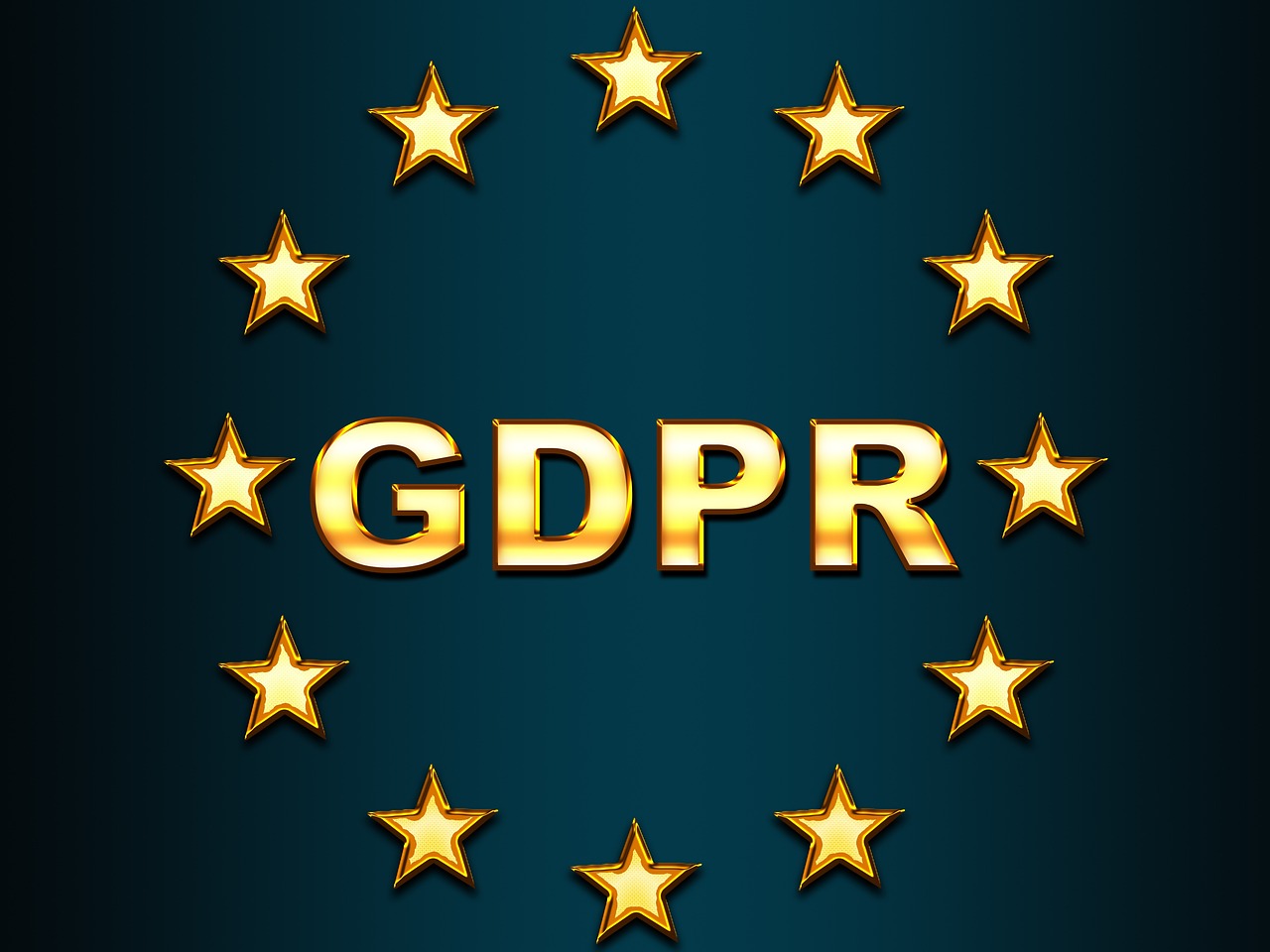
Case Studies in Morality Legislation
When we dive into the murky waters of morality legislation, it's essential to anchor our understanding with real-world examples. These case studies illuminate the intricate dance between laws and moral values, showcasing both the triumphs and pitfalls of attempting to legislate what is deemed "right" or "wrong." Let's explore a few notable instances that have shaped our current legal landscape.
One of the most striking examples is the Prohibition era in the United States, which lasted from 1920 to 1933. The 18th Amendment aimed to curb alcohol consumption, reflecting a societal belief that drinking was morally wrong. However, instead of fostering a sober society, it gave rise to a slew of unintended consequences, including the emergence of organized crime, speakeasies, and widespread lawbreaking. The moral intent behind the legislation crumbled under the weight of reality, leading to its eventual repeal. This case serves as a cautionary tale: what seems like a noble cause can sometimes spiral into chaos when enforced through law.
Another significant instance is the ongoing debates surrounding same-sex marriage. For decades, various states in the U.S. enacted laws that reflected a traditional view of marriage, rooted in specific moral and religious beliefs. However, as societal attitudes shifted, these laws faced legal challenges, culminating in the landmark Supreme Court decision in Obergefell v. Hodges (2015), which legalized same-sex marriage nationwide. This case highlights the tension between legislating morality based on prevailing societal norms and the fundamental rights of individuals, emphasizing that morality is not static but evolves with cultural shifts.
In a more global context, consider the decriminalization of marijuana in several countries and states. What began as a moral crusade against drug use has transformed into a legislative movement focused on public health and individual freedom. The shift reflects a growing recognition that criminalizing certain behaviors can lead to more harm than good, challenging the notion that morality should dictate the law. This evolution raises profound questions: Are we better off when laws reflect personal choices, or should morality guide our legislation?
To further illustrate these complexities, we can look at a comparative table that summarizes key aspects of these case studies:
| Case Study | Initial Moral Intent | Outcome | Lessons Learned |
|---|---|---|---|
| Prohibition (1920-1933) | Reduce alcohol consumption | Rise in crime, illegal trade | Legislation can backfire |
| Same-Sex Marriage | Traditional marriage definition | Legalization, recognition of rights | Morality evolves with society |
| Marijuana Decriminalization | Prevent drug use | Focus on public health | Personal freedom vs. moral legislation |
As we analyze these case studies, it becomes clear that the intersection of morality and legislation is fraught with challenges. Each situation reveals the complexities inherent in trying to legislate morality, reminding us that laws must adapt to the changing fabric of society. Ultimately, the goal should be to strike a balance that respects individual freedoms while fostering a just and equitable society.
- What is morality legislation? It refers to laws that are based on moral beliefs about what is right and wrong.
- Can morality be legislated effectively? While laws can reflect societal morals, the effectiveness of legislating morality often leads to unintended consequences.
- How do cultural differences affect morality legislation? Diverse cultural perspectives can lead to varied interpretations of morality, influencing legislative approaches and creating challenges in pluralistic societies.
- What role does religion play in morality legislation? Religious beliefs often shape moral values, which can inform laws, especially in societies where religion plays a significant role.
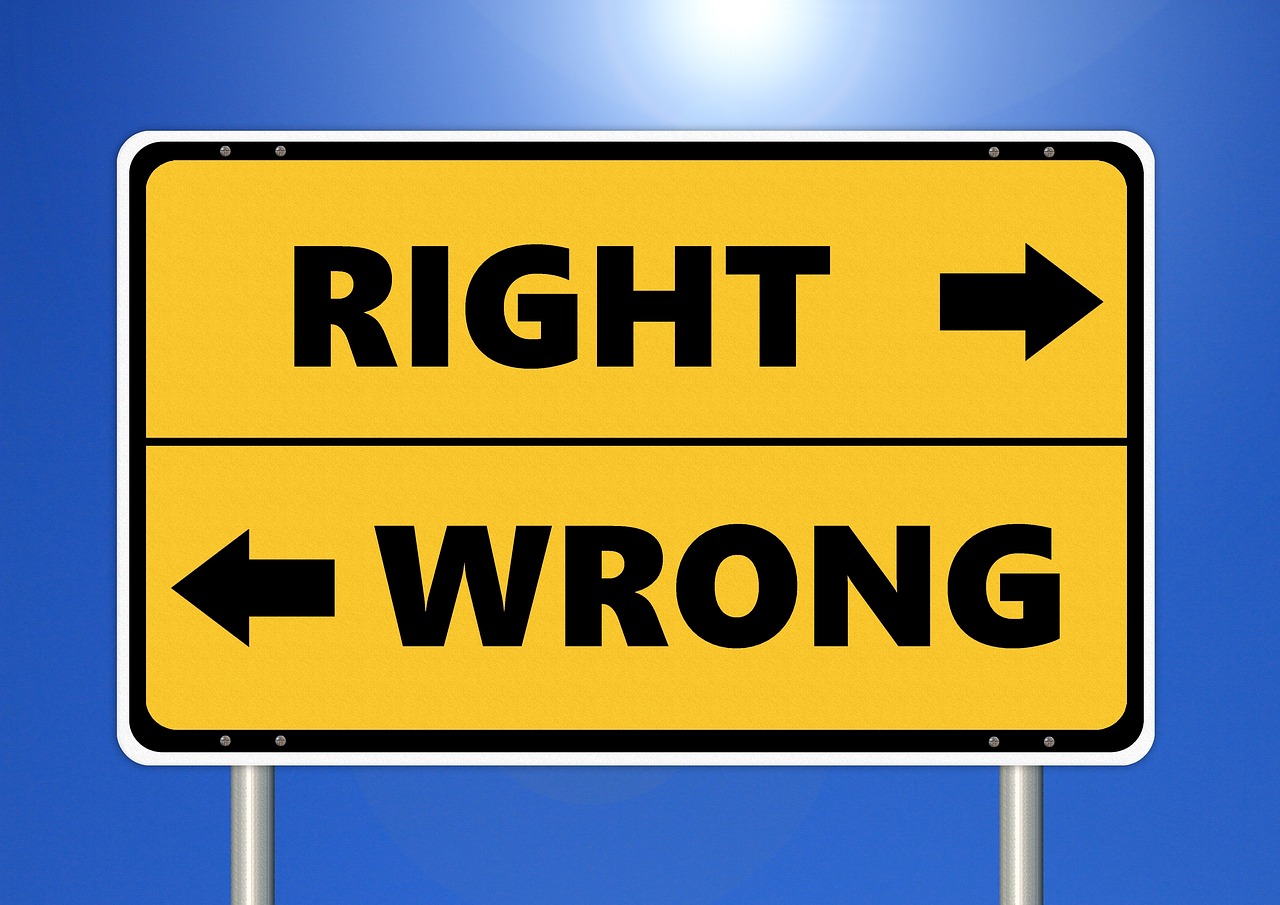
Future Directions in Moral Legislation
As we peer into the horizon of societal evolution, the landscape of moral legislation is poised for significant transformation. The rapid pace of technological advancement and the shifting sands of social values are reshaping how we perceive morality and its legislative implications. Imagine a world where artificial intelligence not only assists in decision-making but also influences our moral compass. This scenario raises questions: Should AI be allowed to make ethical decisions? Who defines the moral framework within which these technologies operate?
Moreover, the rise of globalization has fostered an interconnectedness that challenges traditional views of morality. As cultures converge, we find ourselves navigating a complex web of moral beliefs. This cultural exchange can lead to a more inclusive understanding of morality, but it also poses significant challenges. For instance, how do we legislate in a way that respects diverse moral perspectives while maintaining social cohesion? The answer may lie in a more pluralistic approach to legislation that seeks to harmonize differing moral frameworks.
In this context, social media plays a pivotal role in shaping public opinion and moral discourse. Platforms like Twitter and Facebook have become modern-day town squares where moral issues are debated vigorously. The instantaneous nature of these platforms allows for rapid dissemination of ideas, but it also opens the door to misinformation and polarized views. Lawmakers must adapt to this new reality, considering how public sentiment can influence legislation. Engaging with the public through these platforms could lead to more democratic and responsive legislative processes.
Furthermore, we must consider the implications of environmental ethics in future legislation. As climate change becomes an increasingly pressing issue, the moral obligation to protect our planet is gaining traction. Laws that reflect a commitment to sustainability and environmental stewardship will likely emerge as crucial components of moral legislation. This shift not only addresses ecological concerns but also aligns with a growing public consciousness about our collective responsibility to future generations.
Finally, the interplay between personal freedom and moral legislation will continue to be a hot-button issue. As individuals assert their rights and seek autonomy over their lives, lawmakers face the challenge of balancing these freedoms with societal moral standards. This delicate dance will require ongoing dialogue and perhaps even new frameworks for understanding rights in relation to morality. The future of moral legislation may very well depend on our ability to navigate these complex waters, ensuring that laws reflect both ethical considerations and individual liberties.
In conclusion, the future of moral legislation is not a straightforward path but rather a multifaceted journey. As we grapple with technological advancements, cultural diversity, and evolving social values, the need for a thoughtful and inclusive approach to legislation becomes increasingly clear. The questions we face today will shape the moral landscape of tomorrow, and it is our collective responsibility to engage in this discourse actively.
- What is moral legislation?
Moral legislation refers to laws that reflect societal values and ethics, often aiming to regulate behavior based on moral beliefs. - How does technology impact moral legislation?
Technology influences moral legislation by introducing new ethical dilemmas and changing societal norms, requiring lawmakers to adapt existing laws. - Why is cultural diversity important in moral legislation?
Cultural diversity enriches the moral discourse and helps create laws that are more inclusive and representative of various perspectives. - What role does public opinion play in shaping moral legislation?
Public opinion, especially as expressed through social media, can significantly influence lawmakers and the legislative process, making it more responsive to societal changes.
Frequently Asked Questions
- What is the relationship between ethics and law?
The relationship between ethics and law is intricate and often debated. Ethics refers to moral principles that govern a person's behavior, while law is a system of rules created and enforced through social or governmental institutions. Essentially, laws can be seen as a reflection of the ethical standards of a society, but they don't always align perfectly. For instance, something may be legal but still considered unethical by many.
- How does morality influence legislation?
Morality plays a crucial role in shaping legislation. Legislators often draw upon the moral values of their constituents to create laws that reflect societal norms. This means that as moral perspectives evolve, so too can the laws that govern society. For example, changes in public opinion about issues like same-sex marriage have led to significant legal reforms in many countries.
- What are the implications of legislating morality?
Legislating morality can lead to various implications, including social division and conflict. While some laws aim to promote a moral standard, they may inadvertently restrict personal freedoms or lead to discrimination against certain groups. It's a balancing act where lawmakers must consider the ethical ramifications of enforcing specific moral codes while respecting individual rights.
- What is the difference between moral absolutism and moral relativism?
Moral absolutism is the belief that certain actions are universally right or wrong, regardless of context. In contrast, moral relativism suggests that moral judgments are dependent on cultural, social, or personal circumstances. This debate is essential in discussions about legislating morality, as it influences how laws are interpreted and applied across different societies.
- How do cultural differences impact moral beliefs?
Cultural differences can significantly shape moral beliefs and, consequently, the laws that govern a society. What is considered moral in one culture may be viewed differently in another. This diversity can create challenges in pluralistic societies, where multiple moral perspectives coexist, leading to potential conflicts in legislation.
- What role does religion play in shaping morality?
Religion often serves as a foundation for many people's moral beliefs. Religious teachings can influence legislation by promoting specific ethical standards. However, in secular societies, the challenge arises when laws based on religious morals conflict with the rights of individuals who may not share those beliefs.
- Can legislating morality lead to unintended consequences?
Yes, legislating morality can lead to unintended consequences. For example, laws aimed at promoting certain moral behaviors can result in social backlash or increased criminal activity. It's essential for lawmakers to carefully consider the potential outcomes of their legislation to avoid negative repercussions.
- How can laws protect individual freedoms while enforcing morality?
Finding a balance between enforcing morality and protecting individual freedoms is a significant challenge for lawmakers. Laws should aim to uphold societal values while ensuring that personal rights are not infringed upon. This requires ongoing dialogue and assessment of how laws impact different segments of the population.
- What are some examples of morality legislation?
Examples of morality legislation include laws against drug use, regulations on sexual conduct, and restrictions on gambling. These laws often reflect the moral standards of the society in which they are enacted, and analyzing case studies can provide insights into their effectiveness and the lessons learned from their implementation.
- What might the future hold for moral legislation?
As society evolves, so too will the perspectives on morality and the laws that govern us. Technological advancements, shifting social values, and increased globalization are likely to influence future trends in moral legislation. It's crucial for lawmakers to remain adaptable and responsive to these changes to create laws that reflect the evolving ethical landscape.




